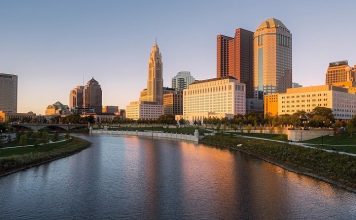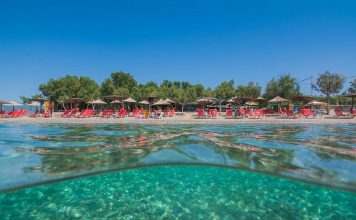Nestled in the embrace of the majestic French Alps, Grenoble emerges as a beacon of enchantment, celebrated for its harmonious blend of stunning natural landscapes, scientific innovation, and vibrant cultural richness. The city’s breathtaking mountain backdrop and the convergence of urban vitality and outdoor escapades create an alluring tapestry that entices visitors from around the world.
What is Grenoble Known For?
Grenoble, aptly dubbed the “Capital of the Alps,” commands attention for its awe-inspiring Alpine setting that presents a breathtaking panorama of towering peaks and pristine valleys. Beyond its scenic splendor, the city occupies a pivotal role in scientific and technological progress. Boasting an array of prestigious research institutions, Grenoble is at the forefront of innovation, nurturing advancements in fields such as physics, engineering, and environmental studies. This unique amalgamation of nature and innovation harmoniously coexists with a vibrant cultural scene, evident in its myriad museums, galleries, and theaters that reflect the region’s artistic dynamism.
Famous People from Grenoble
The city of Grenoble has been the birthplace and nurturing ground for an array of luminaries who have left indelible imprints on the world. One such notable figure is Louis Néel, a distinguished physicist and Nobel laureate renowned for his groundbreaking contributions to magnetism. His legacy stands as a testament to Grenoble’s role as a cradle of brilliance across various domains. The city’s legacy of inspiring greatness endures as it continues to cultivate talents in science, arts, sports, and beyond.
Famous Sports in Grenoble
Grenoble’s geographical marvel, surrounded by the Alpine wonderland, has endowed it with an inherent affinity for winter sports. The city’s significance in the realm of skiing and snowboarding is accentuated by its historical role as a host of the Winter Olympics. The majestic mountains that enshroud Grenoble offer an unrivaled playground for outdoor enthusiasts, providing a canvas for skiing, mountaineering, and a myriad of other exhilarating pursuits. Yet, Grenoble’s sports culture transcends its icy terrains, embracing a diversity of activities that cater to an active lifestyle year-round.
Famous Streets in Grenoble
The streets of Grenoble narrate an enchanting tale of the city’s history and evolution. Traverse the timeless Rue Saint-Laurent, a cobbled path lined with centuries-old buildings that exude an aura of nostalgia and a glimpse into a bygone era. Embrace the vivacity of the present on the bustling Avenue Félix Viallet, adorned with stylish boutiques, inviting cafes, and cultural venues that resonate with the city’s contemporary heartbeat. This juxtaposition of historical charm and modern vibrancy showcases Grenoble’s seamless blend of tradition and progress.
FAQs about Grenoble
When is the best time to visit Grenoble? Grenoble is at its most enchanting during the spring months of April to June, when the weather is mild and perfect for outdoor exploration. The summer months of July and August also offer a pleasant climate for experiencing the city’s vibrant culture and surrounding Alpine beauty.
What is Grenoble known for historically and culturally? Grenoble is renowned for its stunning location nestled among the French Alps, providing a breathtaking backdrop for outdoor adventures and activities. Beyond its natural beauty, the city has gained international recognition as a center of scientific innovation and technological progress. Its numerous research institutions and universities contribute to advancements in various fields, making it a hub for academic excellence. Grenoble’s vibrant cultural scene is reflected in its museums, galleries, and theaters that showcase the region’s artistic and creative talents.
Who are some famous individuals associated with Grenoble? Grenoble has been the birthplace and nurturing ground for exceptional individuals who have achieved prominence in their respective fields. One notable figure is Louis Néel, a distinguished physicist and Nobel laureate, celebrated for his groundbreaking work in magnetism. His legacy underscores Grenoble’s history of fostering brilliance across diverse domains, from science to the arts.
Which sports thrive in Grenoble? Grenoble’s geographical setting amid the Alps has naturally fostered a strong winter sports culture. The city’s connection to skiing and snowboarding is exemplified by its history of hosting the Winter Olympics. Additionally, Grenoble’s scenic mountains provide a playground for a range of outdoor enthusiasts, offering opportunities for hiking, mountaineering, and more. The city’s commitment to an active lifestyle is evident through its diverse sports facilities.
Which streets contribute to Grenoble’s charm? Grenoble’s streets are a tapestry of its rich history and modern dynamism. The Rue Saint-Laurent evokes a sense of nostalgia with its cobblestone pathways and centuries-old buildings, inviting you to stroll through time. In contrast, the bustling Avenue Félix Viallet offers a contemporary experience, featuring shops, cafes, and cultural venues that reflect Grenoble’s evolving identity.
See more Famous Places in France:
- What is Paris Famous For?
- What is Marseille Famous For?
- What is Lyon Famous For?
- What is Toulouse Famous For?
- What is Nice Famous For?
- What is Nantes Famous For?
- What is Strasbourg Famous For?
- What is Montpellier Famous For?
- What is Bordeaux Famous For?
- What is Lille Famous For?
- What is Rennes Famous For?
- What is Reims Famous For?
- What is Le Havre Famous For?
- What is Cergy-Pontoise Famous For?
- What is Saint-Etienne Famous For?
- What is Toulon Famous For?
- What is Angers Famous For?
- What is Grenoble Famous For?
- What is Dijon Famous For?
- What is Nimes Famous For?














